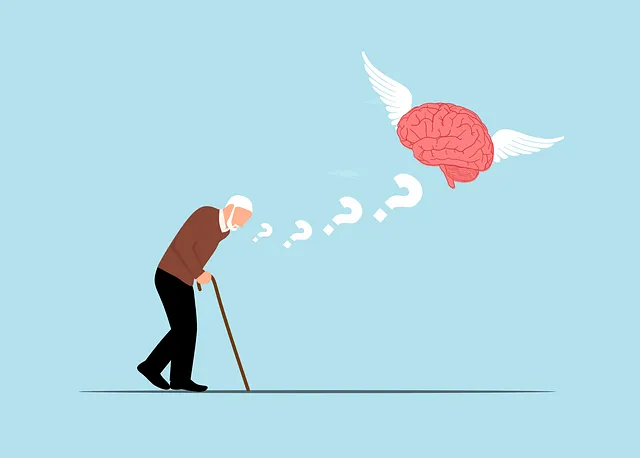The Centennial Kaiser Permanente Mental Health Appointment Center employs innovative group facilitation techniques to create a supportive environment for individuals with diverse challenges. Through personalized activities like guided meditations and journaling, facilitators enhance mood management and self-awareness. This holistic approach fosters open discussions, improves conflict resolution skills, and builds community, significantly enhancing therapeutic outcomes. Evaluations using qualitative and quantitative methods measure improvements in mental wellness, ensuring the programs address diverse needs effectively.
Mental wellness group facilitation plays a pivotal role in enhancing therapeutic outcomes at healthcare centers like Centennial Kaiser Permanente mental health appointment center. This article explores various aspects of group facilitation techniques, beginning with understanding their significance in mental health settings. We delve into the specific roles facilitators play, examine engaging dynamics, and measure success through impact evaluation. By drawing insights from Kaiser Permanente’s appointment center, we offer valuable strategies to optimize group therapy sessions for better patient care.
- Understanding Group Facilitation in Mental Health Settings
- The Role of a Facilitator at the Kaiser Permanente Appointment Center
- Techniques to Foster Engaging and Therapeutic Group Dynamics
- Measuring Success: Evaluating the Impact of Group Facilitation Programs at Centennial Kaiser Permanente
Understanding Group Facilitation in Mental Health Settings

In mental health settings, group facilitation plays a pivotal role in fostering a supportive environment for individuals navigating various challenges. At Centennial Kaiser Permanente Mental Health Appointment Center, facilitators employ unique techniques to enhance group interactions and promote healing. These methods go beyond traditional therapy sessions, recognizing the power of peer support and shared experiences. By creating a safe space, facilitators encourage open discussions, foster self-awareness, and teach valuable conflict resolution techniques—all essential elements for improving mental wellness.
Understanding group facilitation involves tailoring activities to meet specific needs. For instance, mood management strategies are integrated through guided meditations and journaling exercises. Additionally, self-awareness exercises help members recognize and express emotions effectively. Such tailored approaches not only cater to individual growth but also build a sense of community among group members, mirroring the holistic vision of comprehensive mental health care at Centennial Kaiser Permanente.
The Role of a Facilitator at the Kaiser Permanente Appointment Center

At the Centennial Kaiser Permanente mental health appointment center, the role of a facilitator goes beyond merely scheduling and managing sessions. They serve as a guiding force for individuals navigating their mental wellness journeys. Through active listening and empathetic engagement, facilitators create a safe and supportive environment at the heart of the Centennial Kaiser Permanente mental health appointment center. This enables clients to explore and share their experiences openly, fostering meaningful connections and enhancing therapeutic outcomes.
The facilitator’s expertise lies in facilitating discussions that delve into various evidence-based practices like Compassion Cultivation Practices, encouraging positive thinking, and boosting confidence. They skillfully navigate conversations, ensuring every client receives personalized support tailored to their unique needs. By cultivating a sense of belonging and empowerment, these facilitators play a pivotal role in transforming lives at the Centennial Kaiser Permanente mental health appointment center.
Techniques to Foster Engaging and Therapeutic Group Dynamics

Facilitating engaging and therapeutic group dynamics is a crucial aspect of mental wellness support, especially at centers like the Centennial Kaiser Permanente mental health appointment center. Group therapy offers a unique opportunity for individuals to connect, share experiences, and gain insights from one another. One effective technique is encouraging active participation through open-ended discussions, allowing members to explore their emotions and thoughts in a safe environment. This fosters emotional regulation skills, as participants learn to identify and express their feelings constructively.
Additionally, incorporating activities that promote positive thinking and trauma support services can significantly enhance group dynamics. Interactive exercises, such as mindfulness practices or creative arts therapy, help individuals process traumatic experiences and cultivate resilience. By integrating these strategies, facilitators create a supportive atmosphere where members feel valued, understood, and empowered to contribute, ultimately maximizing the therapeutic benefits of group sessions.
Measuring Success: Evaluating the Impact of Group Facilitation Programs at Centennial Kaiser Permanente

Evaluating the success of group facilitation programs at Centennial Kaiser Permanente’s mental health appointment center is a multifaceted process. Success isn’t merely measured by attendance or participation but by the tangible improvements in participants’ mental wellness. This includes assessing changes in mood management skills, inner strength development, and confidence boosting.
Researchers employ various qualitative and quantitative methods to gauge these shifts. Pre-and post-program surveys capture self-reported improvements in symptoms and overall well-being. Additionally, follow-up interviews provide deeper insights into participants’ experiences and the longevity of their newfound coping mechanisms. Observational notes from facilitators also play a crucial role, offering real-time assessments of group dynamics and individual progress. By combining these evaluation techniques, Centennial Kaiser Permanente ensures that its programs effectively address the diverse needs of individuals seeking support for their mental health.
Group facilitation techniques play a pivotal role in enhancing mental wellness at settings like the Centennial Kaiser Permanente mental health appointment center. By understanding the dynamics of group interactions and employing strategies to foster engaging, therapeutic environments, facilitators can significantly impact patient outcomes. As demonstrated by the success of the group facilitation programs at Centennial Kaiser Permanente, these techniques not only improve individual well-being but also contribute to a more robust and supportive community within the mental health care landscape.






